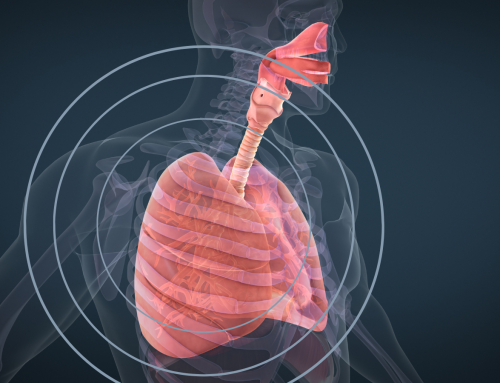We’ll very shortly be celebrating the end of the Winter when warmer weather returns and we can enjoy heading outdoors again. But for those of us with seasonal allergies and/or asthma, it also means the return of finding it much more difficult to control your breathing symptoms. Before we take a look at how you manage asthma in the Spring, let’s take a moment to look at what asthma is and why it can become more problematic at this time of year.
What is asthma?
Asthma is a common chronic and potentially life-threatening condition that causes breathing difficulties. People often have sensitive, inflamed airways that can be affected for the following reasons:
- they produce mucus in large amounts that can be thicker than normal (mucus hypersecretion),
- they become narrower than normal because the muscles around the airways tighten (bronchoconstriction),
- they become swollen or irritated (inflammation), which specifically happens in the lining of the airway.
Symptoms can come and go, they may even disappear for months at a time, but allergic asthma in particular can include
- coughing
- wheezing, especially when exhaling
- feeling breathless
- having a tight chest
- a blocked nose
- itchy eyes
- a rash
These symptoms can be related to other conditions but are mostly likely to be asthma if they:
- happen often and keep coming back
- are worse at night and early in the morning
- seem to happen in response to an asthma trigger like exercise or an allergy (such as to pollen or animals)
Asthma needs to be treated every day, even if you feel well, to lower the risk of symptoms and asthma attacks.
What causes asthma?
The main factor underlying asthma is an exaggerated hypersensitivity response – an over-action of the body to a specific trigger (such as air pollution or pollen) causing a cascade of white blood cells, immune cells and inflammatory cells to flood our airways. This results in airway inflammation and damage to the airway lining,
Pollen and pollution are increasingly responsible for asthma triggers and many people find a worsening of their symptoms in Spring due to increased pollen from trees, grass and weeds.
UK pollen exposure is most common in the spring and summer months, so being prepared and having a plan to help minimise your symptoms is key.
What can you do to manage asthma in the Spring?
Our top tips for avoiding triggers and managing your asthma are:
- Use your prescribed asthma medication – ensure you are taking your prescribed medication properly and as directed. Schedule a review with your doctor or asthma nurse if you aren’t sure about your asthma action plan.
- Limit your time outdoors – or rather plan your time outside carefully, being mindful of how air quality can change throughout the day. You may find it best to be indoors on windy days and during the early morning hours when pollen counts are highest. If staying indoors isn’t an option then wear glasses or sunglasses. This acts as a barrier, keeping pollen out of your eyes.
- Be more vigilant at home – if you know pollen is going to be a trigger for you, make sure you keep windows and doors closed during the day. Also remove outdoor shoes as you come into your home so you don’t move pollen around the air indoors. You may need to vacuum more often to help remove pollen.
- Monitor your peak flow – keep track of your peak flow and monitor whether it dips below baseline. This will be a sign you may need to schedule a review with your asthma nurse or doctor
- Pace activities – you may find you feel more breathless than usual if you are experiencing a symptom flare. Break activities up in to manageable chunks and adopt positions of ease and breathing control to settle your breathing.
Where to turn if you need help managing your asthma
There is lots of useful information on Asthma + Lung UK which is a great initial resource. You may also have a dedicated asthma nurse who will also be able to help guide and support you.
Our respiratory physiotherapists can offer advice on how to recognise and cope with flare ups, managing breathlessness, exercising with asthma, as well as considering other factors such as nasal or sinus symptoms.
Get in touch with the team today:
email: enquiries@airphysiotherapy.co.uk
call 020 7971 1464





